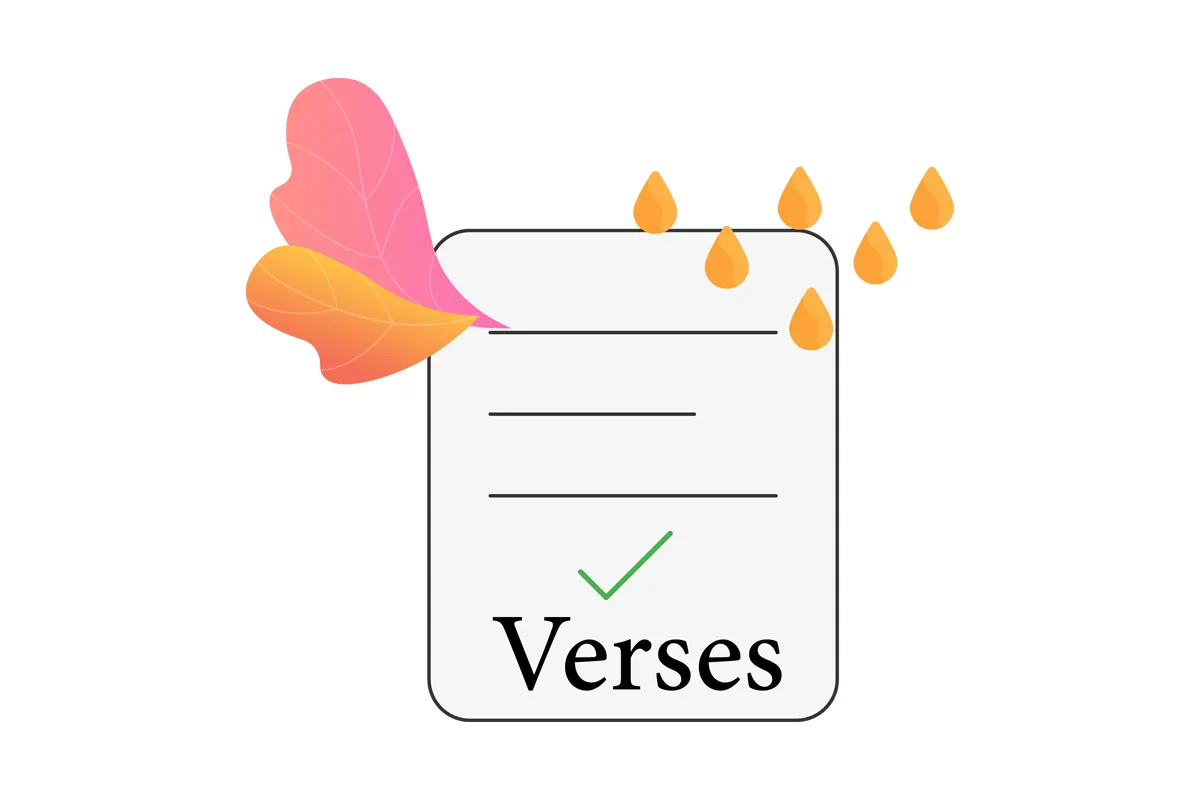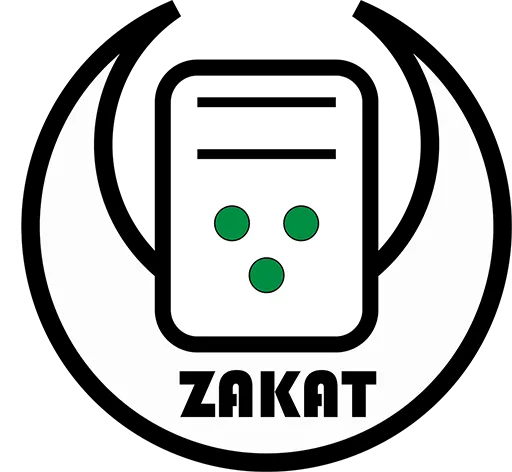
Zakat, one of the Five Pillars of Islam, holds immense significance in the life of a Muslim. Derived from the Arabic root word zakaa, which means “to purify” or “grow,” it represents a spiritual purification of wealth. For those who wish to understand this concept in light of the Holy Quran, exploring quranic verses on zakat provides an enriching insight into its purpose, impact, and role in society.
What is Zakat, and Why is It Crucial in Islam? 🤔
Before diving into specific zakat ayat in Quran, let’s clarify what Zakat truly signifies. In essence, Zakat is a mandatory charitable contribution, calculated as a fixed percentage of one’s savings and wealth. The concept is more than just a financial duty; it’s a spiritual commitment to help those in need, ensure social justice, and purify one’s wealth.
Here’s where it gets fascinating: the zakat in Quran is mentioned alongside salah (prayer) numerous times. This highlights its equal importance in practicing faith. When a Muslim pays Zakat, they aren’t merely fulfilling an obligation—they’re nurturing a society grounded in empathy and equity.
Comprehensive guide on what is zakat.
The Connection Between Zakat and Quran 🌟
The Quran provides timeless guidance on various aspects of life, including the principles of Zakat. Multiple quranic verses on zakat emphasize its significance and define who should give and who can receive. These verses not only underscore its obligatory nature but also remind believers of the immense spiritual rewards.
Let’s explore some of the prominent verses and understand their messages step by step.
Key Quranic Verses on Zakat and Their Messages 📖
1. Surah Al-Baqarah (2:177)
“Righteousness is not that you turn your faces toward the east or the west, but [true] righteousness is in one who believes in Allah, the Last Day, the angels, the Book, and the prophets and gives wealth, in spite of love for it, to relatives, orphans, the needy, the traveler, those who ask [for help], and for freeing slaves…”
💡 Key Takeaway: This verse beautifully describes the essence of righteousness, linking faith with generosity. Zakat is portrayed as a powerful act of compassion, focusing on aiding marginalized groups in society.
2. Surah Al-Tawbah (9:60)
“Zakat expenditures are only for the poor and for the needy and for those employed to collect [Zakat] and for bringing hearts together [for Islam] and for freeing captives and for those in debt and for the cause of Allah and for the stranded traveler—an obligation [imposed] by Allah. And Allah is Knowing and Wise.”
🔗 Detailed Commentary on Zakat Distribution
💡 Key Takeaway: This verse outlines the categories of Zakat recipients, ensuring fairness and transparency. It demonstrates the practicality of Zakat in addressing diverse societal needs, from poverty alleviation to debt relief.
3. Surah Al-Muzzammil (73:20)
“…And establish prayer and give Zakat and loan Allah a goodly loan. And whatever good you put forward for yourselves—you will find it with Allah. It is better and greater in reward.”
💡 Key Takeaway: The recurring connection between prayer and Zakat emphasizes its central role in a Muslim’s life. This verse reassures believers that their charitable acts are never in vain, promising spiritual and worldly benefits.
4. Surah Al-Baqarah (2:43)
“And establish prayer and give Zakat and bow with those who bow [in worship and obedience].”
This verse connects the acts of prayer (salah) and Zakat, reinforcing their complementary nature. It signifies that a complete believer fulfills both spiritual and social responsibilities.
5. Surah Al-Baqarah (2:110)
“And establish prayer and give Zakat, and whatever good you put forward for yourselves—you will find it with Allah. Indeed, Allah of what you do is Seeing.”
Here, Allah reassures believers that all good deeds, including Zakat, are acknowledged and rewarded by Him.
6. Surah Al-Baqarah (2:177)
“Righteousness is not that you turn your faces toward the east or the west, but [true] righteousness is in one who believes in Allah… and gives wealth, in spite of love for it, to relatives, orphans, the needy, the traveler, those who ask [for help], and for freeing slaves…”
This verse defines righteousness as an all-encompassing trait, with Zakat being one of its integral components.
7. Surah Al-Tawbah (9:60)
“Zakat expenditures are only for the poor, the needy, those employed to collect [Zakat], for bringing hearts together [to Islam], for freeing captives, for those in debt, for the cause of Allah, and for the stranded traveler—an obligation [imposed] by Allah. And Allah is Knowing and Wise.”
This verse lays down the categories of people eligible for Zakat, ensuring fair distribution.
8. Surah Al-Tawbah (9:71)
“The believing men and believing women are allies of one another. They enjoin what is right and forbid what is wrong and establish prayer and give Zakat and obey Allah and His Messenger. Those—Allah will have mercy upon them. Indeed, Allah is Exalted in Might and Wise.”
This verse highlights the role of Zakat in strengthening the bond of the Muslim community.
9. Surah Al-An’am (6:141)
“And He it is who produces gardens trellised and untrellised, and palm trees, and crops of different shape and taste (its fruits and its seeds) and olives, and pomegranates, similar (in kind) and different (in taste). Eat of their fruit when they ripen, but pay the due thereof (its Zakat, according to Allah’s Orders) on the day of its harvest.”
This verse emphasizes paying Zakat on agricultural produce at the time of harvest.
10. Surah Al-Mu’minun (23:4)
“And those who pay Zakat.”
In this verse, paying Zakat is listed among the traits of successful believers.
11. Surah Maryam (19:31)
[Jesus said:] “And He has made me blessed wherever I am and has enjoined upon me prayer and Zakat as long as I remain alive.”
This verse speaks of Prophet Isa (Jesus, peace be upon him) and highlights the universal and timeless nature of Zakat.
12. Surah Maryam (19:55)
“And he [Ismail] used to enjoin on his people prayer and Zakat and was to his Lord pleasing.”
This verse emphasizes how Zakat was an established practice among earlier prophets and their followers.
13. Surah Luqman (31:4)
“Who establish prayer and give Zakat, and they, of the Hereafter, are certain [in faith].”
The verse connects belief in the Hereafter with the fulfillment of religious duties like Zakat.
14. Surah Al-Nisa (4:77)
“Have you not seen those who were told, ‘Restrain your hands [from fighting] and establish prayer and give Zakat’? But then when fighting was ordained for them, at once a party of them feared men as they fear Allah or with [even] greater fear.”
This verse underscores the consistency of Zakat as a duty, even during challenging circumstances.
15. Surah Al-Hajj (22:41)
“[They are] those who, if We give them authority in the land, establish prayer and give Zakat and enjoin what is right and forbid what is wrong. And to Allah belongs the outcome of [all] matters.”
This verse highlights the importance of Zakat in governance and societal leadership.
16. Surah Al-Nur (24:56)
“And establish prayer and give Zakat and obey the Messenger that you may receive mercy.”
This verse connects obedience to Allah and His Messenger with the fulfillment of prayer and Zakat.
17. Surah Al-Tawbah (9:34-35)
“O you who have believed, indeed many of the scholars and the monks devour the wealth of people unjustly and avert [them] from the way of Allah. And those who hoard gold and silver and spend it not in the way of Allah—give them tidings of a painful punishment.”
“On the Day when it will be heated in the fire of Hell and seared therewith will be their foreheads, their flanks, and their backs, [it will be said], ‘This is what you hoarded for yourselves, so taste what you used to hoard.'”
These verses warn against hoarding wealth and neglecting the duty of Zakat.
18. Surah Al-Bayyina (98:5)
“And they were not commanded except to worship Allah, [being] sincere to Him in religion, inclining to truth, and to establish prayer and to give Zakat. And that is the correct religion.”
This verse describes Zakat as part of the fundamental teachings of Islam.
How Zakat Shapes a Compassionate Society 🌍
Zakat isn’t just about personal purification; it’s a tool for societal transformation. By adhering to the principles in zakat ayat in Quran, communities can bridge the gap between the rich and the poor.
Positive Impacts of Zakat
- Reduces poverty: A structured Zakat system ensures wealth reaches those in dire need.
- Fosters unity: By sharing resources, the rich and poor develop mutual respect and gratitude.
- Strengthens faith: Regular Zakat payments remind Muslims of their responsibility toward others.
The Wisdom Behind Zakat Ayat in Quran
Ever wondered why Allah repeatedly mentions Zakat in the Quran? Let’s delve into the deeper wisdom.
1. Strengthening Brotherhood🤝
Islamic teachings prioritize community well-being. By emphasizing zakat in Quran, Allah highlights that Muslims must care for one another, fostering bonds of love and support.
2. Purification of Wealth💰
Wealth can be a trial, leading to greed and selfishness. Zakat purifies wealth, reminding Muslims to view their possessions as a blessing rather than an entitlement.
3. Encouraging Accountability🧾
The meticulous calculation and distribution of Zakat cultivate financial discipline and transparency. It’s not just an act of charity; it’s a testament to one’s faith and integrity.
Zakat: A Step-by-Step Guide for Beginners 👣
If you’re new to Zakat, understanding the process can seem overwhelming. Here’s a simplified guide to help you get started:
Step 1: Know Your Zakatable Wealth
Zakat is due on specific types of wealth, including:
- Savings
- Gold and silver
- Business inventory
- Investments
Step 2: Calculate Zakat (2.5%)
The standard rate for Zakat is 2.5% of your total Zakatable wealth. Use a reliable Zakat calculator for accuracy.
Step 3: Identify Eligible Recipients
Refer to Surah Al-Tawbah (9:60) for the categories of Zakat recipients. Prioritize those in your community who are struggling financially.
Step 4: Pay Zakat Promptly
Delaying Zakat without a valid reason is discouraged in Islam. Ensure timely payments to fulfill your duty.
Importance of Regularly Reflecting on Quranic Verses on Zakat
To truly grasp the spirit of Zakat, spend time reflecting on the quranic verses on zakat. These verses aren’t just commandments; they’re profound reminders of our purpose as stewards of Allah’s blessings.
Tips for Reflection
- Recite Zakat-related verses during your prayers.
- Discuss their meanings with family or in study groups.
- Implement their teachings in your daily life.
Visualizing the Impact of Zakat Through Infographics 📊
To make the concept of Zakat more accessible, here’s an idea: visualize its impact through infographics. Create a chart showing how a small percentage of wealth can change countless lives. Include real-world statistics to illustrate the collective power of Zakat.
Frequently Asked Questions on Zakat
No, Zakat is only obligatory on adults who meet the nisab threshold.
Yes, as long as the total amount is paid within the Zakat year.
Yes, but not to immediate dependents like parents, children, or spouses.

1 thought on “Quranic Verses on Zakat and its Significance in Islam 🌙”